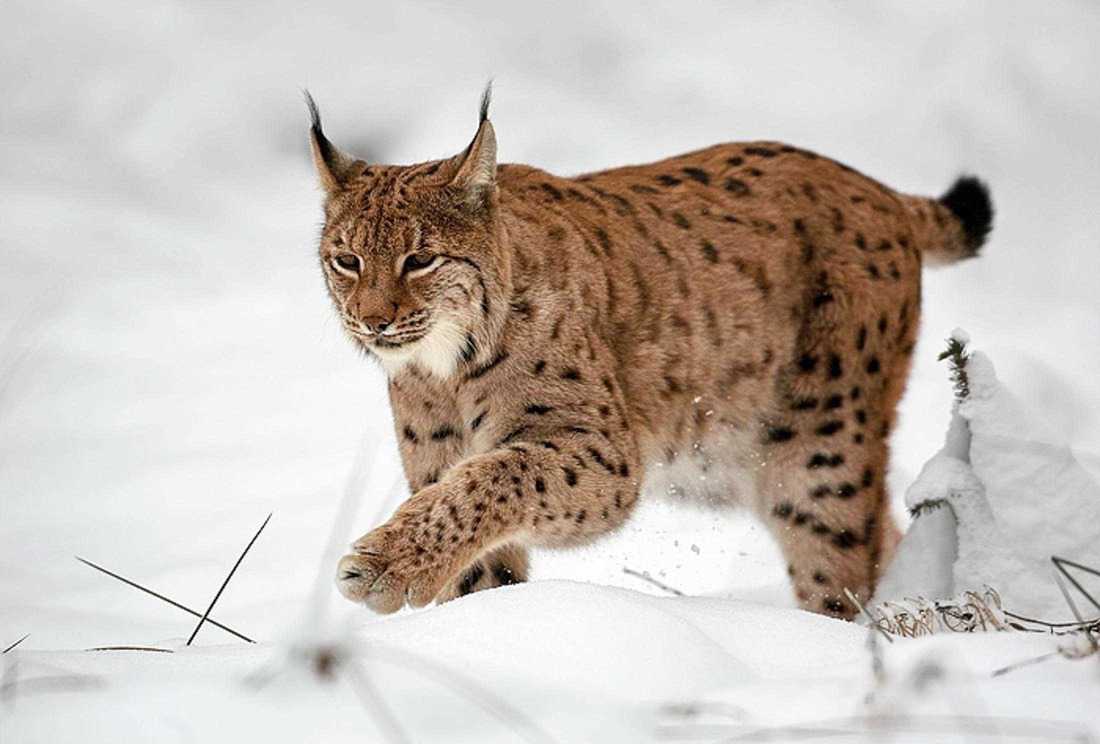65% of Germans love Wilderness
Large majority of Germans in favour of Wilderness
65% of Germans love Wilderness, are for natural forests and floodplains and reject genetic engineering in general. These are the findings of a new study commissioned and presented by the Federal Minister of the Environment Barbara Hendricks and the President of the Federal Agency for Nature Conservation, Beate Jessel.
Wild nature is indispensable not only for animals and plants, but also for us humans. Germans are in general nature lovers and are in favor of increased Wilderness areas. This study gives us support to pursue our objective to increase the Wilderness areas in Germany to meet the CBD objectives.

The study also shows how important for the general population natural flood plains, natural meadows and non managed forests are. This is one more reason for us to protect these habitats, which in addition to their beauty will bring us many other eco system services such as clean water, increased biodiversity, storage of carbon dioxide or reduction of the effects of climate change. What the Germans rightly do not want are genetically modified plants or vegetables. According to BfN-President Beate Jessel: “The Study also showed that 93 percent of the German population are of the opinion that nature should only be used so that the biodiversity and the habitats are permanently saved.”
Carrying capacity limits accepted
Nearly two thirds of Germans like Wilderness the wilder it is. There is a strong desire to enjoy and experience Wilderness: Four out of five people want the Wilderness to be accessible. The fact that there may be carrying capacity controls and access limitations is accepted and respected. Only a minority of 11 per cent are in favor of unrestricted access, 68 percent favor such limitations. At this point in time only few areas in Germany have certified Wilderness areas according to the European Wilderness Quality Standards. There is a general understanding that Wilderness, especially if situated within National Parks, will create new Jobs and enhance a region. Only 21 percent see increased Wilderness areas as a risk for the forestry sector and only 16 per cent see Wilderness as a threat to the agricultural sector.
More Germans are for the return of the Wolf than against it
44% of Germans are in favour of the return of the Wolf to the German ecosystem compared to 41% which are against them returning.









You are one of the lucky people being able to enjoy and observe nature in action. Just imagine you would live on Times Square.
https://youtu.be/WmVLcj-XKnM
In Burbank, CA, we have Mountain Lions that come into town and take the little dogs and cats, when they are not hunting the deer(that come into the city to eat our plants) in the Verdugo Mountains. Bob Cats are too small to count. Also, black bears come down from the mountains to visit, as well. Coyotes run wild in town as well. Raccoons dig up my lawn, skunks pass through, not to mention the ugly opossums. Our Fox Squirrels, are much bigger than your little Red Squirrels and the eastern Grey Squirrels and they love to chew on the wires and, or course, any fruit on the trees. The Pacific Ocean is around 15miles away with the 12 foot Great White Sharks that are100 meters out from the sand, not to mention the whales. We do not have any wolves to take care of the pests. Burbank Animal Control told me that the wild animals were here before me and if I didn’t like them, I could move.
See we have the Wolves and just returning to golden jackal to take care of these pests.
Yes, the allies liberated the American raccoons at the end of WWII, but they enjoyed it so much there that they did not want to come home. Our loss is your gain. I hear that the American Grey Squirrels have already conquered the UK and now they are making progress in the EU, such as Germany. In America, the wild animals, like people, enjoy city living much more than roughing it in the wild. Seeing wild boar in the cities is a new one for me. In America, we have wild pigs that run in packs outside of cities, and they are 300 pound pests. In wild pig territory, we are armed with the appropriate caliber firearm.
Toungue in cheek..THe racoons were brought to Germany during the 1930´s… and during the second world war they were released. Today they populate almost all of central Europe north to south. They really like it here!
I think that you can thank the Americans for the cute Raccoons and the lively Grey Squirrels.